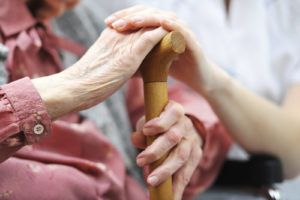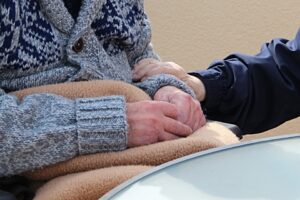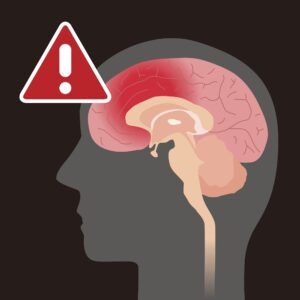The Emotional and Physical Signs of Nursing Home Abuse

If you or a loved one have been injured by the intentional, reckless, or negligent conduct of a nursing home staff member, the lawyers at Cardaro & Peek can help.
When someone we love requires more care than we can give, we want a safe and caring place for them to thrive. Unfortunately, sometimes the nursing homes and care facilities are negligent or don’t treat our loved ones the way we want. The scary reality is that patients in these kinds of facilities are often unable to report abuse they receive because of declining cognitive function, disability, or fear of worse treatment. From the outside, we may not be able even to identify the abuse if we don’t know what to look for. Read on for some types and common signs of abuse in nursing homes.
Physical Abuse
Common symptoms of physical nursing home abuse include bruises, welts, scratches, or fractured or broken bones. Not all broken bones in elderly people are the result of abuse and an experienced physician should be able to tell the difference. Other signs of abuse include broken possessions (like glasses), withdrawing behavior, and being scared or startled easily.
Mental Abuse
Mental abuse tends to be more subtle than physical abuse, so the signs can be harder to spot, even for the people on the receiving end. Common signs to watch for include changes in behavior, including withdrawing from social activities and refusing to take medication. Being scared or fearful especially of being left alone is another common sign, as is repetitive behavior, like rocking back and forth.
Sexual Abuse
As horrifying as the idea is, sexual abuse does happen in nursing home facilities and it can be hard to detect. The signs of sexual abuse can be physical, like bruises around the genitals or breasts, or emotional, like self-isolation or angry outbursts. Other common signs are vaginal or anal bleeding, torn or stained underwear, and contracting venereal diseases or infections .
Financial Abuse
Abuse doesn’t have to happen directly to the patient. Financial abuse is common, but very hard to detect, since it often involves coercing or tricking the patient into actually giving consent for the expenditures. Common signs include missing checks, checkbooks, or other financial items; unexpected expenditures, especially to unfamiliar or unregistered charities; and new subscriptions to monthly services. If your loved one has recently become secretive, especially of financial matters, and they are hoarding papers, this could also be a sign that they are being taken advantage of financially.
Contact The Law Offices of Cardaro & Peek, LLC Today
The lawyers at Cardaro & Peek, LLC have the experience and resources necessary to investigate and litigate all types of medical claims throughout Maryland and Washington D.C. Cardaro & Peek, LLC has medical personnel on staff and has access to nationally recognized, board-certified physicians and other experts, to assist in the investigation, analysis, and prosecution of all types of medical malpractice claims. If you or a loved one have experienced malpractice, give us a call at 410-752-6166. Please visit our website www.cardarolaw.com and follow us on Facebook , Twitter , and LinkedIn for more information.
The post The Emotional and Physical Signs of Nursing Home Abuse appeared first on .







Baltimore Office
201 N Charles St #2100 Baltimore, MD 21201
Washington DC Office
1300 I Street N.W., Suite 400E
Washington, DC 20005



